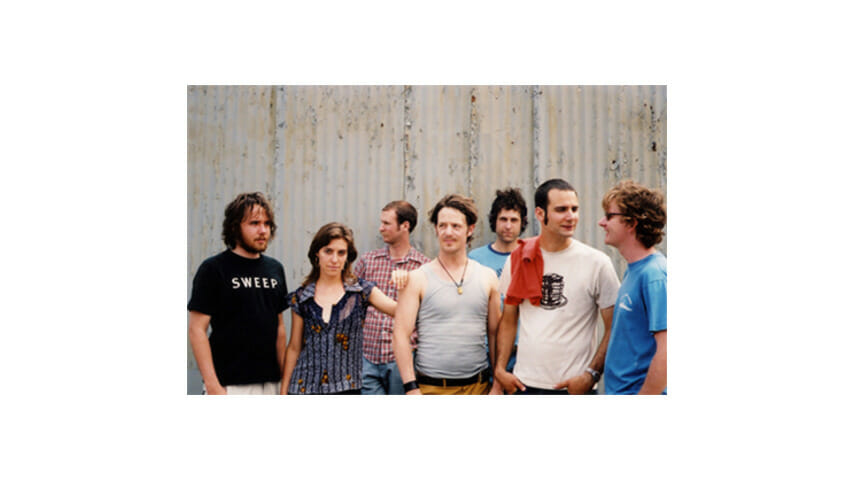Broken Social Scene

It must be the socialized medicine. How else could one explain the fact that, somehow, Canada’s Broken Social Scene sees nothing wrong with paying an 18-member band? Of course, it could also be the success. Since Pitchforkmedia.com shot the Toronto collective into the indie mainstream with an almost-perfect review of 2002’s You Forgot It In People, the band’s roll has swelled, resulting in the outfit that performed three sold-out shows at Manhattan’s spacious Webster Hall before jetting off to Europe.
-

-

-

-

-

-

-

-

-

-

-

-

-

-

-

-

-

-

-

-

-

-

-

-

-

-

-

-

-

-

-

-

-

-

-

-

-

-

-

-








































